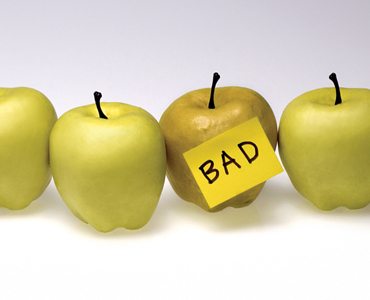
One bad apple doesn’t have to spoil the barrel
By Zainab Walji and Alice Edwards
Business Operations Food Safety Processing food safety Product RecallTake control of a food recall situation

By Zainab Walji and Alice Edwards
Consumers today are quick to respond to food safety issues — even unproven ones. If in doubt about a product, they will often immediately switch to another brand. For food and beverage companies, this poses major risks. If you mismanage even a single product recall, you can face significant long-term ramifications: decreasing customer loyalty, declining sales, degradation of your brand, even potential bankruptcy. But a product recall doesn’t have to spoil your future. There are several steps you can take to show you have your customers’ safety top of mind.
Develop a product recall response plan
The best way to be prepared is to develop a food recall response plan in advance. Start by evaluating your exposure to  different types of food recalls, from accidental contamination to malicious tampering. From there, you can develop a plan outlining your response. This might include how you will evaluate the situation, trace the problem product, dispose of the product and notify and communicate with stakeholders — whether consumers, retailers, regulators or the media.
different types of food recalls, from accidental contamination to malicious tampering. From there, you can develop a plan outlining your response. This might include how you will evaluate the situation, trace the problem product, dispose of the product and notify and communicate with stakeholders — whether consumers, retailers, regulators or the media.
Conduct mock recall scenarios
How well you respond in the first few hours or days of a product recall event will likely determine the severity of the impact on your brand and reputation. The challenge is, you might not know what issue you’re dealing with until it’s all over the news and social media. To help socialize and test your response plan, identify gaps and make improvements, consider incorporating mock recall scenarios into your risk management training. This type of tabletop exercise can help management and employees recognize how quickly food issues can arise and get out of control, while highlighting their specific roles in different scenarios.
Consider product recall insurance
Responding to a product recall event can be expensive. Depending on your risk exposure, evaluate if you need product recall insurance. Over the past few years, this type of insurance has become more accessible and affordable. In the event of a product recall incident, insurance can cover a wide range of losses, from the cost of decontaminating your plant and equipment to revenue impacts, tracing, customer notification and disposal.
Become a social listener
Often the first hint of a food-related issue arises within social media. If you aren’t aware of what your customers are saying, you might be blindsided when an issue escalates. Social listeners — companies that track and respond quickly to messaging and trends on social media — scan often to get ahead of a crisis, especially if they have an agile response plan in place.
Partner with experts
If you don’t have the expertise in-house to assess, plan and manage responses to food recall events, identify partners who can help you co-ordinate your response. Advisers with deep industry experience can typically help you prepare a response plan in advance and also give you on-the-ground assistance should an event occur. Typically you only have a short window to take control of a food recall situation. Your ability to act quickly and prove that your customers’ safety comes first may help save your reputation.
Zainab Walji is a partner within the Consulting and Deals practice of PwC Canada. Contact her at zainab.walji@pwc. com. Alice Edwards is a managing director within the Insurance Claims practice of PwC U.S. Contact her at alice.edwards@ pwc.com
Print this page